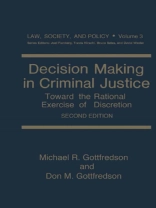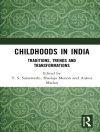The study of decisions in the criminal justice process provides a useful focus for the examination of many fundamental aspects of criminal jus- tice. These decisions are not always highly visible. They are made, or- dinarily, within wide areas of discretion. The aims of the decisions are not always clear, and, indeed, the principal objectives of these decisions are often the subject of much debate. Usually they are not guided by explicit decision policies. Often the participants are unable to verbalize the basis for the selection of decision alternatives. Adequate information for the decisions is usually unavailable. Rarely can the decisions be demonstrated to be rational. By a rationaldecision we mean "that decision among those possible for the decisionmaker which, in the light of the information available, maximizes the probability of the achievement of the purpose of the decisionmaker in that specific and particular case" (Wilkins, 1974a: 70; also 1969). This definition, which stems from statistical decision theory, points to three fundamental characteristics of decisions. First, it is as- sumed that a choice of possible decisions (or, more precisely, of possible alternatives) is available. If only one choice is possible, there is no de- cision problem, and the question of rationality does not arise. Usually, of course, there will be a choice, even if the alternative is to decide not to decide-a choice that, of course, often has profound consequences.
Don M. Gottfredson & Michael R. Gottfredson
Decision Making in Criminal Justice [PDF ebook]
Toward the Rational Exercise of Discretion
Decision Making in Criminal Justice [PDF ebook]
Toward the Rational Exercise of Discretion
Mua cuốn sách điện tử này và nhận thêm 1 cuốn MIỄN PHÍ!
Ngôn ngữ Anh ● định dạng PDF ● ISBN 9781475799545 ● Nhà xuất bản Springer US ● Được phát hành 2013 ● Có thể tải xuống 3 lần ● Tiền tệ EUR ● TÔI 4589547 ● Sao chép bảo vệ Adobe DRM
Yêu cầu trình đọc ebook có khả năng DRM












